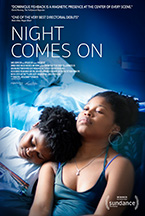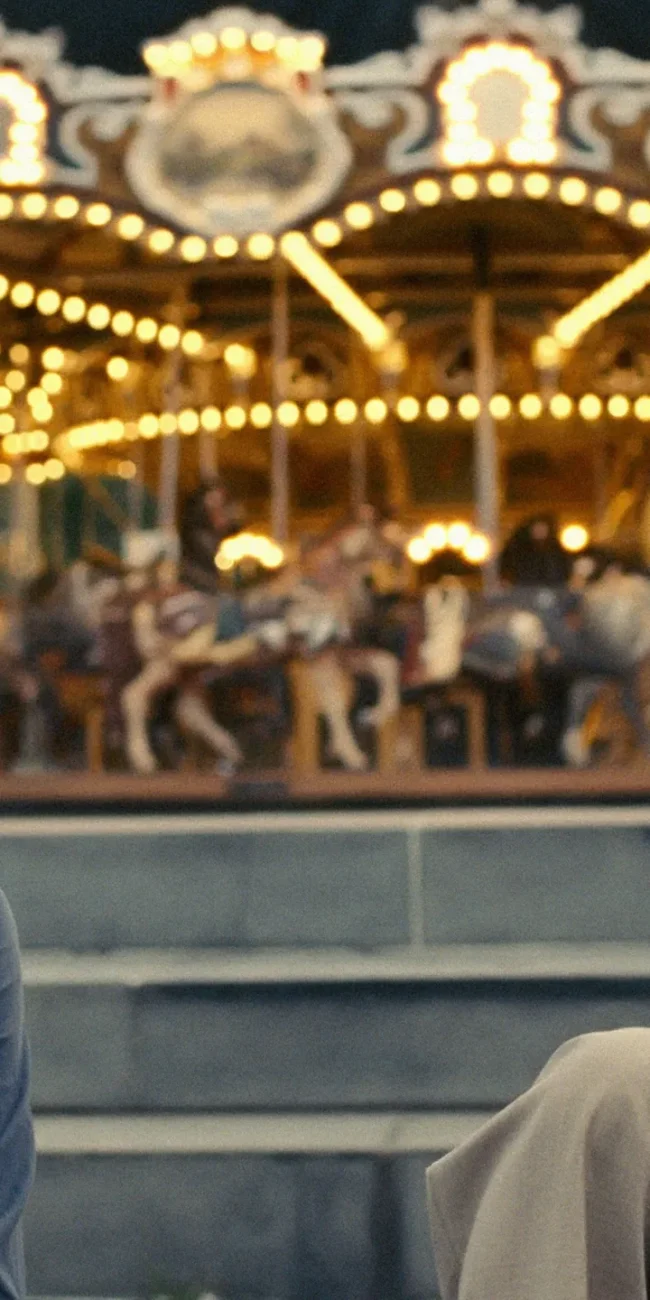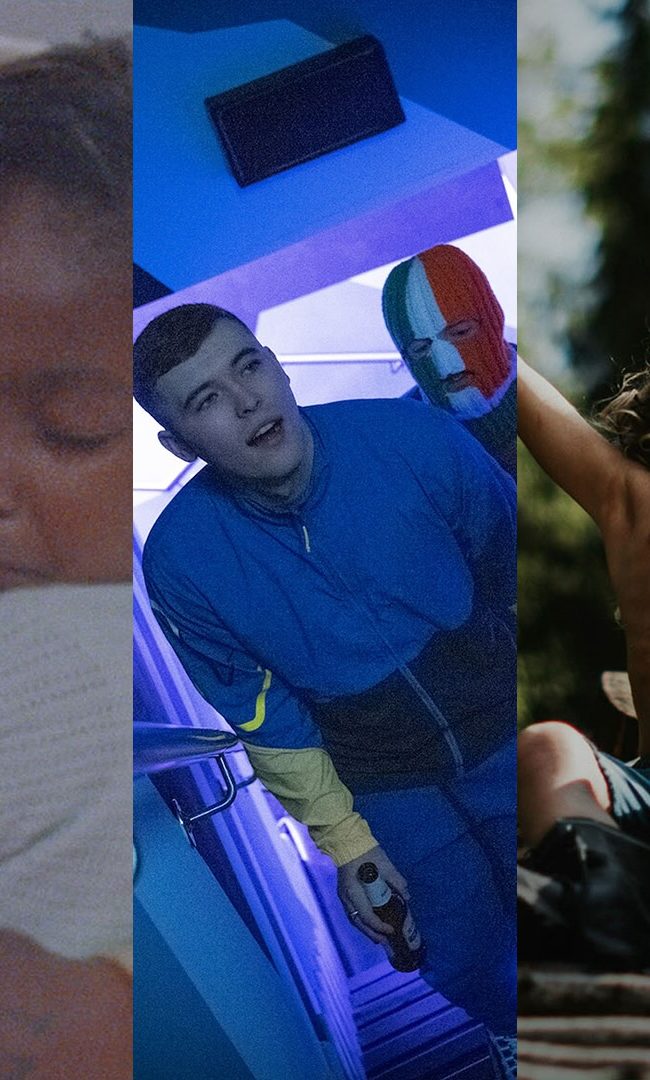NIGHT COMES ON

(Winner of the NEXT Innovator Award at 2018’s Sundance, Jordana Spiro’s Night Comes On is in select theaters as well as VOD platforms via Cinereach.)
Actress-turned-director Jordana Spiro (the motel-owning Rachel on Netflix’s terrific Ozark) premiered her debut feature Night Comes On at the 2018 Sundance Film Festival, where she won the NEXT Innovator Award. The movie, a harrowing look at a young woman’s first days post-release from a juvenile detention center, is a deceptively simple, downscale affair, filled with affecting performances and fine camerawork, the whole a master class in less-is-more filmmaking. Starring Dominique Fishback (Darlene on HBO’s The Deuce) and newcomer Tatum Marilyn Hall, Night Comes On gives us two dynamic female characters in the midst of an ongoing family crisis, forced to rely on each other in a world indifferent and hostile to their circumstances.
Fishback plays Angel, two days shy of her 18th birthday when we first meet her, imminent parole upon her. Caught between the bleak present and the idyllic past, she flits in and out of dreamlike fantasies of remembrance, revisiting the words of her deceased mother, which she reads to us in voiceover. We’re somewhere near the seashore, though most of the landscapes we pass through are urban, the noise of city and traffic masking nature. Indeed, as Angels recalls, mom used to say that the cars at night would sound like the ocean,” and for a while that’s all we get: cars and more cars.
But not for long, as Angel is on the move, immediately looking for her father who, we learn, killed mom (though now, somehow, he is free) and now lives near the beach. First, she needs a place to stay, and then a gun (not necessarily in that order, however); after that, she needs to find her younger sister, Abby (Hall), who knows where dad is. Revenge is a dish best served right out of prison, apparently.
Circumstances don’t quite work out as planned, however, as Angel’s dormant humanity gets the best of her, making her bond with sis for a while. There’s a lovely, gentle rapport between the two actresses, accentuated by the naturalistic lighting of cinematographer Hatuey Viveros Lavielle (Café), who nevertheless also favors off-kilter compositions and extreme close-ups of non-facial body parts that throw the characters’ relationships into constant question, in opposition to the ease with which they play the parts. “What will Angel do?” is the constant refrain, and neither she, Abby, nor the audience know until the very end.
The film is also brilliantly edited, by Taylor Levy, both for image, sound and music, J-cuts and L-cuts leading us in and out of scenes through expert temporal shifts, with composer Matthew Robert Cooper’s score providing just the right tone every time. What’s especially marvelous is how the separate elements come together to be more than the sum of each part, working in subtle harmony with actors and director to tell the story. “I don’t want nothing from you,” spits Angel at her father when the two finally meet. Maybe, but we want more from all involved, and soon.
– Christopher Llewellyn Reed (@ChrisReedFilm)











